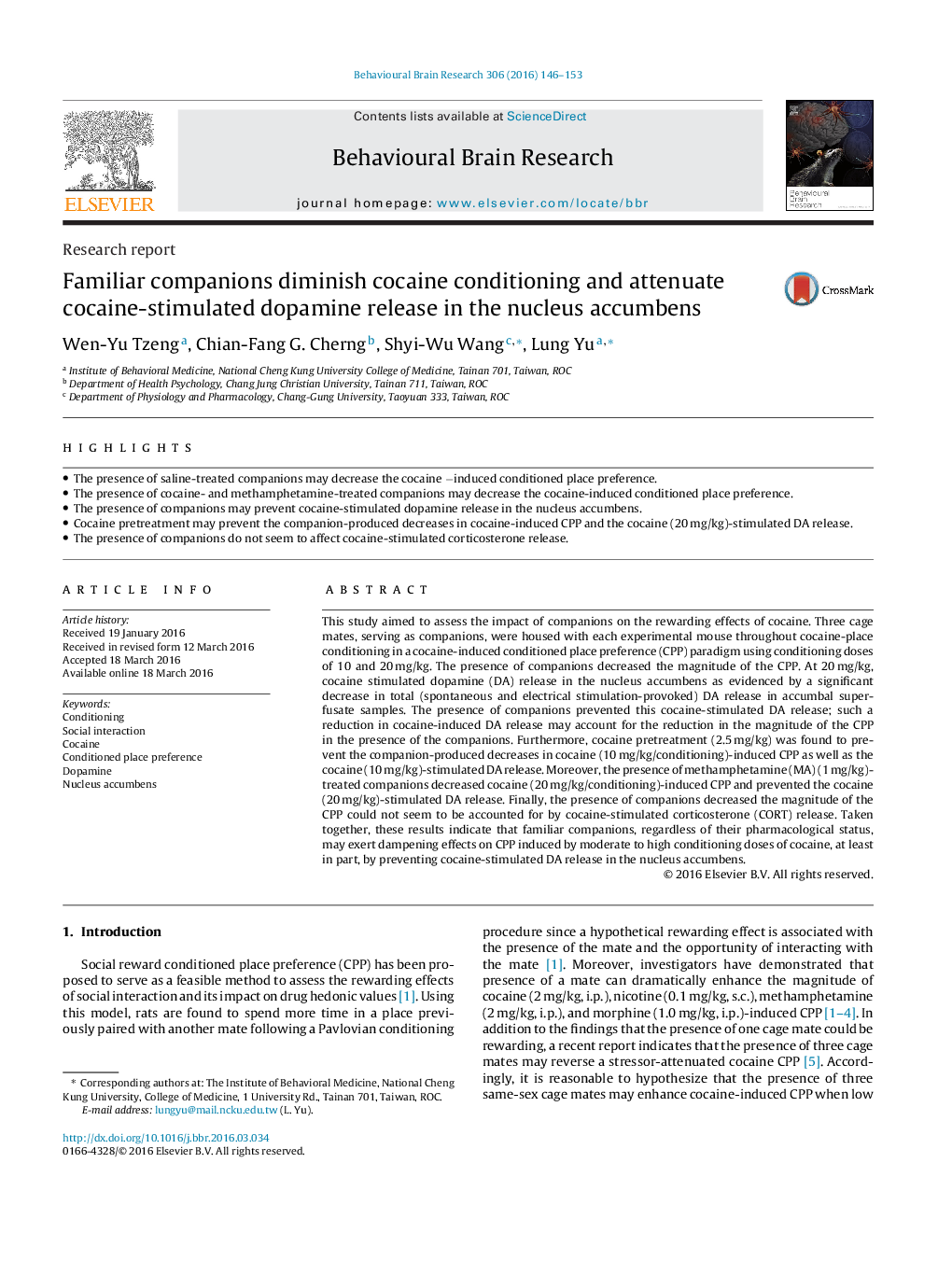| Article ID | Journal | Published Year | Pages | File Type |
|---|---|---|---|---|
| 6256094 | Behavioural Brain Research | 2016 | 8 Pages |
â¢The presence of saline-treated companions may decrease the cocaine âinduced conditioned place preference.â¢The presence of cocaine- and methamphetamine-treated companions may decrease the cocaine-induced conditioned place preference.â¢The presence of companions may prevent cocaine-stimulated dopamine release in the nucleus accumbens.â¢Cocaine pretreatment may prevent the companion-produced decreases in cocaine-induced CPP and the cocaine (20 mg/kg)-stimulated DA release.â¢The presence of companions do not seem to affect cocaine-stimulated corticosterone release.
This study aimed to assess the impact of companions on the rewarding effects of cocaine. Three cage mates, serving as companions, were housed with each experimental mouse throughout cocaine-place conditioning in a cocaine-induced conditioned place preference (CPP) paradigm using conditioning doses of 10 and 20Â mg/kg. The presence of companions decreased the magnitude of the CPP. At 20Â mg/kg, cocaine stimulated dopamine (DA) release in the nucleus accumbens as evidenced by a significant decrease in total (spontaneous and electrical stimulation-provoked) DA release in accumbal superfusate samples. The presence of companions prevented this cocaine-stimulated DA release; such a reduction in cocaine-induced DA release may account for the reduction in the magnitude of the CPP in the presence of the companions. Furthermore, cocaine pretreatment (2.5Â mg/kg) was found to prevent the companion-produced decreases in cocaine (10Â mg/kg/conditioning)-induced CPP as well as the cocaine (10Â mg/kg)-stimulated DA release. Moreover, the presence of methamphetamine (MA) (1Â mg/kg)-treated companions decreased cocaine (20Â mg/kg/conditioning)-induced CPP and prevented the cocaine (20Â mg/kg)-stimulated DA release. Finally, the presence of companions decreased the magnitude of the CPP could not seem to be accounted for by cocaine-stimulated corticosterone (CORT) release. Taken together, these results indicate that familiar companions, regardless of their pharmacological status, may exert dampening effects on CPP induced by moderate to high conditioning doses of cocaine, at least in part, by preventing cocaine-stimulated DA release in the nucleus accumbens.
